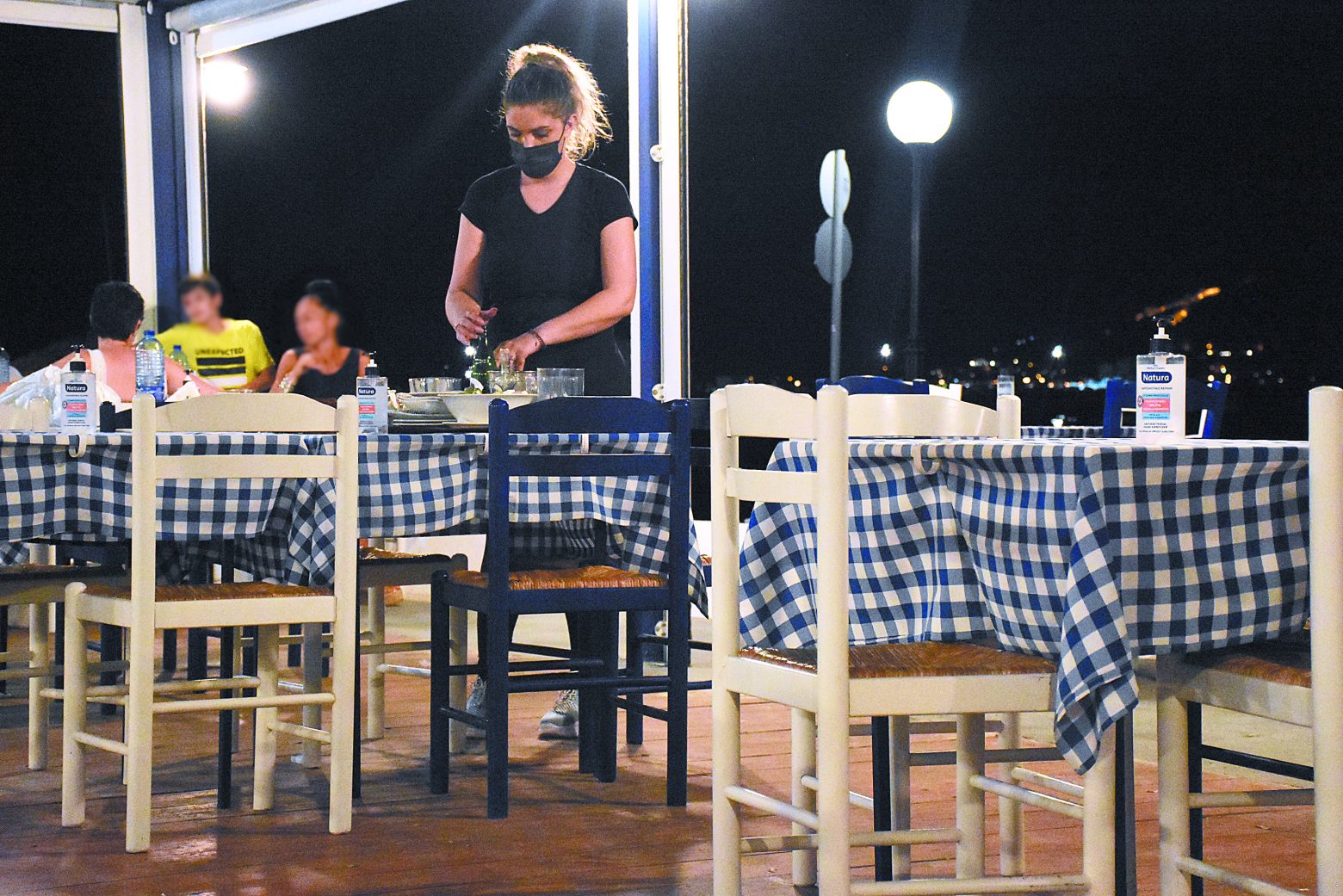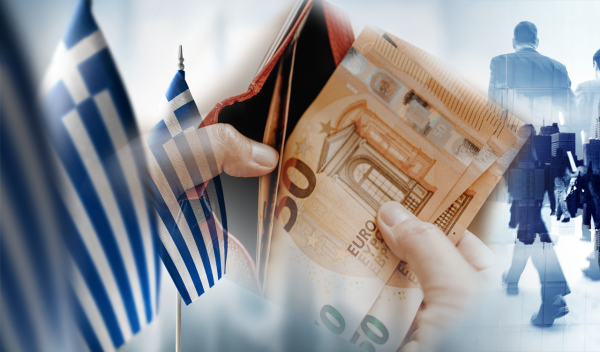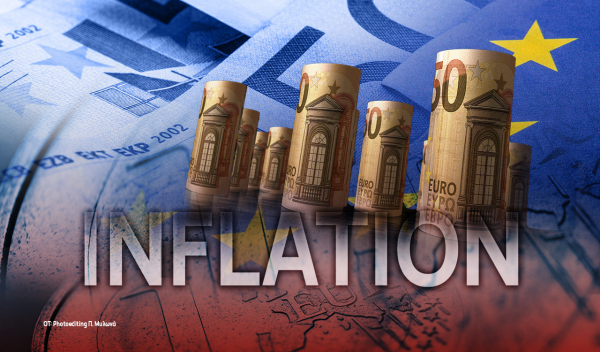
Greece is “championship” in indirect tax rates in the hotel sector and catering, especially compared to competing countries, as shown by Foundation for Economic & Industrial Research (IOBE) data presented at an event held by the “I Support HORECA” Alliance in the framework of the HORECA 2023 exhibition. The event was themed “Food Service and Hospitality – Fewer indirect taxes means a boost to development”.
The contribution of the HORECA sector to the national economy
The IOBE study compared indirect taxation in the HORECA sector in Greece and in other EU countries. As explained by the Foundation’s economist, Grigoris Pavlou, Greece is in 1st place in the EU in terms of the participation of Catering and Hospitality in the economy, with a significant rise after 2010.
In particular, the participation of the sector in the GDP corresponded to a percentage of 5.3% in 2021, with the 109,265 companies active in the sector generating 13.568 billion euros in added value for the economy.
At the same time, it is also a key employer in Greece: More than 700,000 direct jobs are offered by the hotel industry and catering, while together with indirect and induced employment, these exceed 1,000,000. Out of all the country’s employees, 3.6% are employed in positions related to the hotel industry – the 2nd highest percentage in the EU – while for the restaurant industry this percentage reaches 10%, bringing Greece to first place list.
At the same time, indirect taxes on catering and accommodation (such as VAT, Excise Taxes on alcoholic beverages and coffee and Accommodation Tax) account for 11% of the state’s indirect tax revenues, while the sector yields 6.1% of of total government tax revenue.
Indirect taxes: The big challenge for Hospitality and Catering
The high indirect taxation in relation to competing countries in the tourism sector, as well as the constantly changing tax framework, are identified by the study as the main challenges that the HORECA sector has to face.
More specifically, with a VAT rate of 13% on accommodation, Greece is in first place among the seven main tourist markets of southern Europe, with the immediately following markets (Italy, France and Spain) keeping the VAT at 10%, while the lowest rates are found in Cyprus (9%), Malta (7%) and Portugal (6%).
It is even worth mentioning that from 6% in July 2015, the VAT on accommodation increased in October of the same year to 13%, remaining at the same high level since then. In addition, from 2018, the sector is also burdened with an accommodation tax per night proportional to the category of accommodation, but also by the visitor tax (0.5% of the turnover).
As far as the catering industry is concerned, restaurants, with a VAT rate of 13%, place Greece together with Portugal in second place in the EU after Malta. It is worth mentioning, however, that from 2010 to today, the VAT on restaurants has changed 6 times. Nevertheless, the reduction of the rate to 13% after 2019 has since led to a significant strengthening of the sector both in terms of liquidity and employment, which proves the growth boost that can be given to the economy and businesses from the relief of indirect taxation.
In the sector of cafes and bars – whose main activity is the sale of products charged with 24% VAT – Greece is once again the “champion” in VAT. At the same time, businesses in the sector are burdened at the level of operating costs by Excise Taxes on alcoholic beverages and coffee. Especially with regard to the VAT on alcoholic beverages, this in Greece corresponds to €2,550/ 100 lt of ethyl alcohol and is the highest in the EU in purchasing power units and the 5th highest in absolute numbers.
In addition to taxation, catering and hospitality have been under pressure from the revaluation of many goods in recent months, with a large part of the increase held by businesses in the sector. In particular, the cost of electricity has more than doubled, while there is a significant increase in rents in shops in the 1st half of 2022, with an increase in wage costs as well.
As the representatives of the entities from the catering, hotel and alcoholic beverage sectors noted, the reduction of indirect taxation is an option that strengthens the competitiveness of the tourism product and supports businesses in the sector. A sector which has been a pillar of the economy throughout time, even in the difficult period of the economic crisis. Furthermore, the more rational treatment of indirect taxes – VAT and Special Consumption Taxes – brings about fiscal justice, combats one of the main incentives for tax evasion, while in the case of the VAT on alcoholic beverages, the reduction will also play a decisive role in dealing with smuggling.
Latest News

Greece Defines Continental Shelf Limits and Maritime Zones in Landmark EU Document
The Maritime Spatial Planning (MSP) framework represents a comprehensive approach to spatial planning and is crucial for the successful development of a blue and circular economy

EU Praises Greece’s RRF Progress as Revised Recovery Plan Nears Completion
Athens is preparing to submit its revised “Greece 2.0” Recovery and Resilience Plan after Easter, with a slight delay from the initial timeline but with the European Commission’s approval.

Greek €200M 10Y Bond to be Issued on April 16
The 3.875% fixed-interest-rate bond matures on March 12, 2029, and will be issued in dematerialized form. According to PDMA, the goal of the re-issuance is to meet investor demand and to enhance liquidity in the secondary bond market.

German Ambassador to Greece Talks Ukraine, Rise of Far Right & Tariffs at Delphi Economic Forum X
Commenting on the political developments in his country, the German Ambassador stressed that it was clear the rapid formation of a new government was imperative, as the expectations across Europe showed.

Athens to Return Confiscated License Plates Ahead of Easter Holiday
Cases involving court orders will also be excluded from this measure.

Servicers: How More Properties Could Enter the Greek Market
Buying or renting a home is out of reach for many in Greece. Servicers propose faster processes and incentives to boost property supply and ease the housing crisis.

Greek Easter 2025: Price Hikes on Lamb, Eggs & Sweets
According to the Greek Consumers’ Institute, hosting an Easter dinner for eight now costs approximately €361.95 — an increase of €11 compared to 2024.

FM Gerapetritis Calls for Unified EU Response to Global Crises at EU Council
"Europe is navigating through unprecedented crises — wars, humanitarian disasters, climate emergencies," he stated.

Holy Week Store Hours in Greece
Retail stores across Greece are now operating on extended holiday hours for Holy Week, following their Sunday opening on April 13. The move aims to accommodate consumers ahead of Easter, but merchants remain cautious amid sluggish market activity.

Green Getaway Ideas for Easter 2025 in Greece
Celebrate Easter 2025 in Greece the sustainable way with eco-farms, car-free islands, and family-friendly getaways rooted in nature and tradition.









































 Αριθμός Πιστοποίησης
Αριθμός Πιστοποίησης